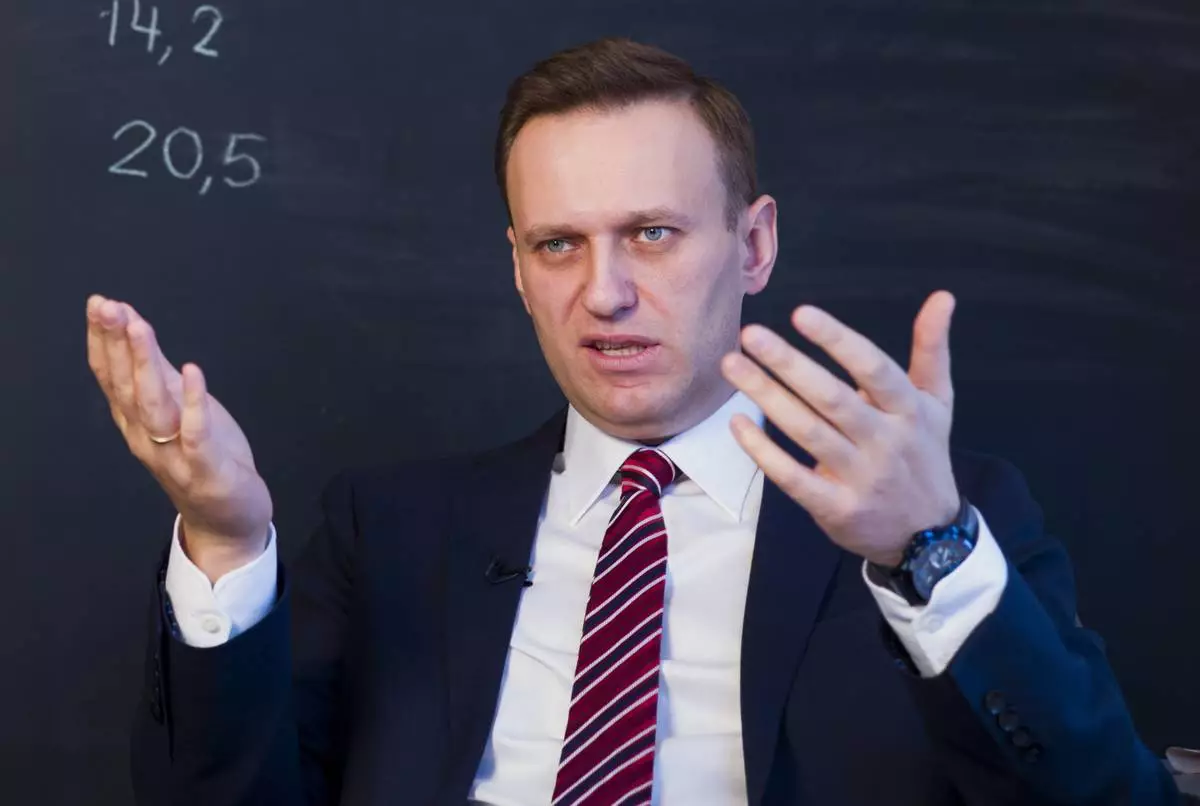For only the fourth time in U.S. history, the House of Representatives has started a presidential impeachment inquiry. House committees are trying to determine whether President Donald Trump violated his oath of office by asking Ukraine to investigate political rival Joe Biden and his family and to investigate the country's involvement in the 2016 U.S. presidential election.
A quick summary of the latest news and what's to come:
WHAT YOU NEED TO KNOW

Demonstrators march on Pennsylvania Avenue protesting against climate policies and to impeach President Donald Trump, in Washington, Friday, Nov. 8, 2019. (AP PhotoJose Luis Magana)
— Investigators in the inquiry on Friday released hundreds of pages of testimony from Fiona Hill, a former White House Russia adviser, and Lt. Col. Alexander Vindman, an Army officer assigned to the National Security Council. Both testified they were concerned Trump was inappropriately pressuring Ukraine to investigate Democrats.
— Ivanka Trump told The Associated Press Friday that the identity of whistleblower is "not particularly relevant" and "shouldn't be a substantive part of the conversation." The whistleblower sparked the inquiry into Trump's efforts to pressure Ukraine to investigate former vice president Joe Biden and his son Hunter Biden.
— John Bolton, Trump's former national security adviser, was aware of "many relevant meetings and conversations" related to the Ukraine pressure campaign that House impeachment investigators have not yet learned about, his attorney Charles Cooper wrote in a letter to the House general counsel. Cooper wants a federal judge to determine whether Bolton and his former deputy, Charles Kupperman, can be compelled to testify against the White House wishes.
— Acting White House chief of staff Mick Mulvaney and Office of Management and Budget associate director Marky Sandy defied House investigator subpoenas and were no-shows for their scheduled depositions. Mulvaney has asked to join a lawsuit brought by another of the president's advisers challenging a congressional subpoena. That suit, filed by former deputy national security adviser Charles Kupperman, asks a court to decide which of two directives Kupperman must follow — one from Congress ordering him to testify, the other from the White House telling him not to. A lawyer for Mulvaney says his case presents the same legal issues as Kupperman's and that he is a closer and even more senior adviser to the president than Kupperman was.
WHAT'S NEXT
Investigators are preparing to start public hearings next week. House Intelligence Committee Chairman Adam Schiff said three State Department witnesses will appear in two hearings next Wednesday and Friday: U.S. ambassador to Ukraine Bill Taylor, career department official George Kent and Marie Yovanovitch, the former U.S. ambassador to Ukraine. Yovanovitch was ousted in May on Trump's orders and Taylor replaced her; both have testified about their concerns with the administration's policy on Ukraine.
NUMBERS THAT MATTER
This week, a dozen Trump administration figures, including high-profile names like Mulvaney and Bolton, declined to appear before the Democratic-led panel. Democrats are wrapping up the closed-door portion of the proceedings.
WORTH WATCHING
First daughter and presidential aide Ivanka Trump granted a rare interview to The Associated Press while on a trip to Morocco. She questioned the motives of the anonymous whistleblower whose allegations touched off the Trump impeachment inquiry and suggested that former Vice President Joe Biden profited from his time in public service: http://apne.ws/dSkeyf0
WORTH READING
The House committees probing Trump's Ukraine dealings released transcripts of the depositions of Vindman and Hill.
Vindman transcript: http://apne.ws/hOMTyHP
Hill transcript: http://apne.ws/ShWUXZO
Previously released transcripts:
State Department official George Kent: http://apne.ws/gX69QfC
Amb. William Taylor, who is scheduled to testify at an open hearing next Wednesday: http://apne.ws/vtAi9aX
Gordon Sondland, U.S. ambassador to the European Union: http://apne.ws/8NmlA02
Kurt Volker, former U.S. envoy to Ukraine: http://apne.ws/rTdEmG4
Michael McKinley, former adviser to Secretary of State Mike Pompeo: http://apne.ws/PrBMFaM
Marie Yovanovitch, former U.S. ambassador to Ukraine, also scheduled to testify at an open hearing next week: http://apne.ws/mBvxghb










